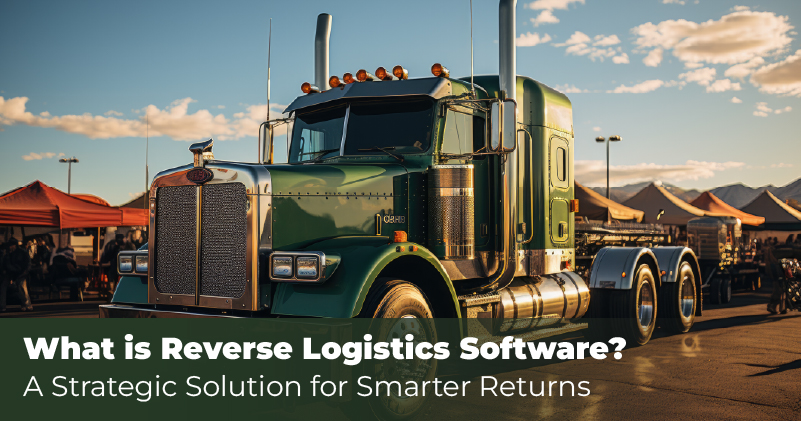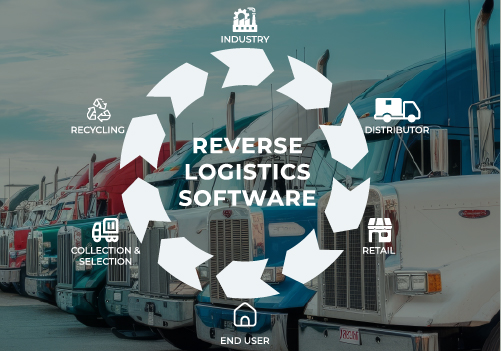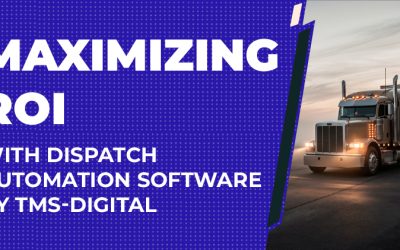
In today’s customer-first, eCommerce-driven supply chain, managing returns isn’t just an operational necessity—it’s a strategic imperative. With increasing return volumes and growing emphasis on sustainability, reverse logistics has evolved from a cost center to a key differentiator. At TMS-Digital, we understand the importance of managing this process efficiently, which is why our Reverse Logistics Software is designed to empower businesses with end-to-end control, visibility, and intelligence throughout the returns lifecycle.
This blog explores what reverse logistics software is, why it matters, and how businesses can leverage TMS-Digital’s technology to improve customer satisfaction, reduce waste, and enhance profitability.
What is Reverse Logistics Software?
Reverse Logistics Software is a digital platform that manages the flow of goods moving backward through the supply chain—from customers to retailers, distributors, or manufacturers. It facilitates activities like product returns, repairs, refurbishments, recycling, and proper disposal.
Unlike traditional logistics systems that focus on product delivery, reverse logistics systems focus on post-sale movement, ensuring smooth, compliant, and cost-effective return operations.
Why Reverse Logistics Matters
Today’s consumers expect easy, transparent, and eco-friendly return experiences. In industries like fashion, electronics, and consumer goods, return rates can exceed 30%—and without a dedicated system, businesses risk operational inefficiencies, lost revenue, and customer dissatisfaction.
Reverse logistics is not just about managing returns—it’s about recovering value. By investing in a modern reverse logistics platform, companies can:
- Streamline return operations
- Reduce manual errors and delays
- Recapture value from returned items
- Support sustainability and compliance efforts
Key Benefits of Reverse Logistics Software
- Enhanced Customer Satisfaction
Simplifying the returns process with automated RMAs, self-service portals, and real-time tracking improves the post-purchase experience and builds customer loyalty.
- Cost Reduction
Automating returns workflows cuts labor costs, minimizes errors, and reduces processing time, resulting in significant operational savings.
- Real-Time Visibility
Dashboards provide complete insight into return flows, processing times, and inventory recovery, enabling data-driven decisions and proactive issue resolution.
- Sustainability & Compliance
Support recycling and refurbishing programs with full documentation and regulatory compliance, helping companies meet environmental goals.
- Improved Inventory Recovery
Quickly assess returned goods for resale or refurbishment, maximizing asset recovery and minimizing write-offs.
Must-Have Features in Reverse Logistics Software
To get the most from a reverse logistics system, ensure it includes the following capabilities:
Automated Return Authorization (RMA)
Streamline returns with rules-based approval flows that reduce manual intervention and speed up refunds or exchanges.
Multi-Channel Integration
Seamless integration with your ERP, eCommerce, WMS, and TMS platforms enables a unified view of logistics operations.
Real-Time Tracking
Keep customers and internal teams informed with real-time updates on return status from pickup to resolution.
Condition Grading & Inspection Tools
Classify returns based on condition to accelerate decisions on restocking, refurbishing, or recycling.
KPI Dashboards & Analytics
Monitor key metrics such as return rates, cost per return, and recovery value to continuously improve processes.
Compliance Documentation
Generate required reports and certifications to meet regulations around hazardous materials, electronics, and waste disposal.
Best Practices for Maximizing ROI with Reverse Logistics Technology
- Define Clear Return Policies
Ensure your return policies are easy to understand and well-aligned with your system workflows.
- Train Your Teams
Empower customer service and warehouse staff with training on inspection, grading, and system use.
- Use Analytics for Strategic Insights
Analyze return trends to identify product defects, supplier issues, or changing customer behaviors.
- Optimize Return Routing
Let the system determine the most cost-effective route—whether it’s returning to origin, a central warehouse, or a refurbishing partner.
- Evaluate and Iterate
Monitor system performance, user feedback, and key metrics to ensure continuous improvement.
Choosing the Right Reverse Logistics Platform
When selecting a solution, look for these critical capabilities:
- Scalability: Can it handle seasonal peaks and business growth?
- Customization: Does it fit your unique workflows and industry needs?
- Security: Is your return and customer data protected?
- Support & Onboarding: Are there robust training and post-implementation services?
TMS-Digital’s platform is trusted by businesses in retail, electronics, automotive, and beyond for its ability to deliver seamless, secure, and scalable reverse logistics operations.
Future Trends in Reverse Logistics
As technology advances, reverse logistics systems will evolve in exciting ways:
- AI & ML: Predict return reasons, automate triage, and optimize recovery decisions.
- Blockchain: Improve traceability and transparency in warranty claims and returns.
- IoT Integration: Use smart sensors to assess returned goods in real time.
Conclusion
Reverse logistics is no longer a secondary concern—it’s a core strategy for profitability, sustainability, and customer experience. With TMS-Digital’s Reverse Logistics Software, you gain the tools to streamline returns, reduce costs, and build long-term value.
Ready to take control of your reverse supply chain? Book a demo with TMS-Digital today and discover how our reverse logistics platform can revolutionize your return operations and drive your business forward.










